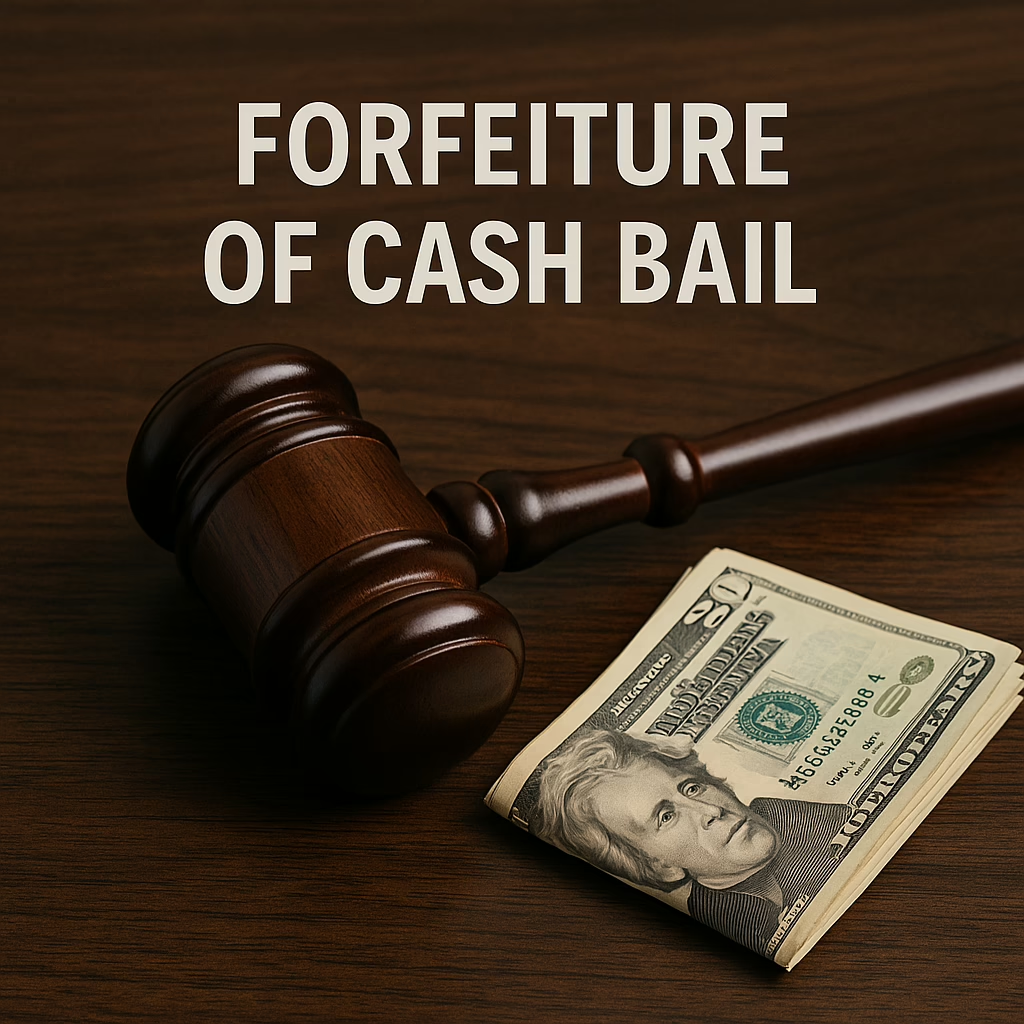When a defendant fails to appear in court, the financial stakes can be high — especially when cash bail is involved. In the case of State v. Navarro, 154 Wn. App. 1044, the Washington Court of Appeals tackled an important question: does the same legal leniency that applies to bail bonds also apply to cash bail? The answer, as clarified by this case, is no.
This case illustrates how cash bail forfeiture differs significantly from the treatment of bail bonds in Washington law. Understanding these differences is vital for anyone facing criminal charges, posting bail, or representing a client in the Washington court system.
Case Background: A Missed Court Date Leads to Forfeiture
In State v. Navarro, the defendant had posted cash bail to secure release while awaiting trial. However, Navarro failed to appear at a scheduled court date. Despite appearing in court roughly a month later and ultimately being sentenced, the trial court still chose to forfeit the cash bail.
Navarro’s legal team argued that the court should have treated the cash bail similarly to a bail bond, which under Washington law can be exonerated if the defendant appears within 60 days of a missed appearance. The court disagreed, finding that no such statutory grace period exists for cash bail.
Legal Analysis: Distinguishing Cash Bail from Bail Bonds
Washington statutes provide a well-defined process for bail bonds, including a 60-day window where a bond can be exonerated if the defendant appears. This protects bail bond agents and incentivizes their efforts to ensure a defendant’s appearance.
However, cash bail is not covered by the same protections. According to the court, when cash is posted for bail — whether by the defendant or a third party — it can be immediately forfeited upon a defendant’s failure to appear. The court emphasized that these rules are clearly laid out in Washington’s criminal procedure statutes, and that trial courts are within their rights to order forfeiture even if the defendant eventually appears.
Navarro also claimed that the forfeiture went against the broader purpose of bail: to ensure a defendant’s return to court. But the appellate court held that since there was no statutory protection for cash bail like there is for bail bonds, the trial court’s decision was legally sound and not an abuse of discretion.
Court Decision: Forfeiture Upheld
The appellate court affirmed the lower court’s decision. It found that the trial judge had acted within the bounds of the law and had adequate reasoning to forfeit the bail. This ruling reinforces the idea that cash bail is subject to immediate forfeiture, and that defendants cannot assume the same protections that apply to bail bonds will apply to cash payments.
For criminal defendants and their attorneys, this decision is a cautionary tale. If cash bail is posted, any failure to appear — no matter how short — can result in a total forfeiture of funds.
Call to Action
If you or a loved one are navigating bail issues in Washington, having legal guidance is essential. Understanding whether you’re posting a bond or cash can make a huge financial difference. Contact Blanford Law today at ken@blanfordlaw.com or 253‑720‑9304 for experienced legal help.

Additional Resources
Internal Links:
- State v. Navarro: Defendants Can Lose Bail Money for Failing to Appear for Trial – This article offers a summary of State v. Navarro and its implications on cash bail practices in Washington.
https://blanfordlaw.com/state-v-navarro-defendants-can-lose-bail-money-for-failing-to-appear-for-trial - Is “Cash-Only” Bail Allowed? Does Bail Have to Be Bondable? – Explores whether Washington courts can require cash-only bail and what that means for defendants.
https://blanfordlaw.com/is-cash-only-bail-allowed-does-bail-have-to-be-bondable - Understanding the Legal Implications of Cash Bail Forfeiture – Insights from State of Washington v. Edward L. Jeglum – Breaks down how cash bail and bail bonds are treated differently under Washington law.
https://blanfordlaw.com/understanding-the-legal-implications-of-cash-bail-forfeiture-insights-from-state-of-washington-v-edward-l-jeglum-is-cash-bail-different-than-bail-bonds - Does the Trial Court Have Discretion Regarding the Forfeiture of Bail Bonds? – Discusses the discretion Washington courts hold when deciding whether to forfeit bail bonds.
https://blanfordlaw.com/does-the-trial-court-have-discretion-regarding-the-forfeiture-of-bail-bonds - How Judges Set Bail in Washington Courts – Outlines the factors courts consider when setting bail amounts and conditions. https://blanfordlaw.com/judges-bail-decisions-wa
